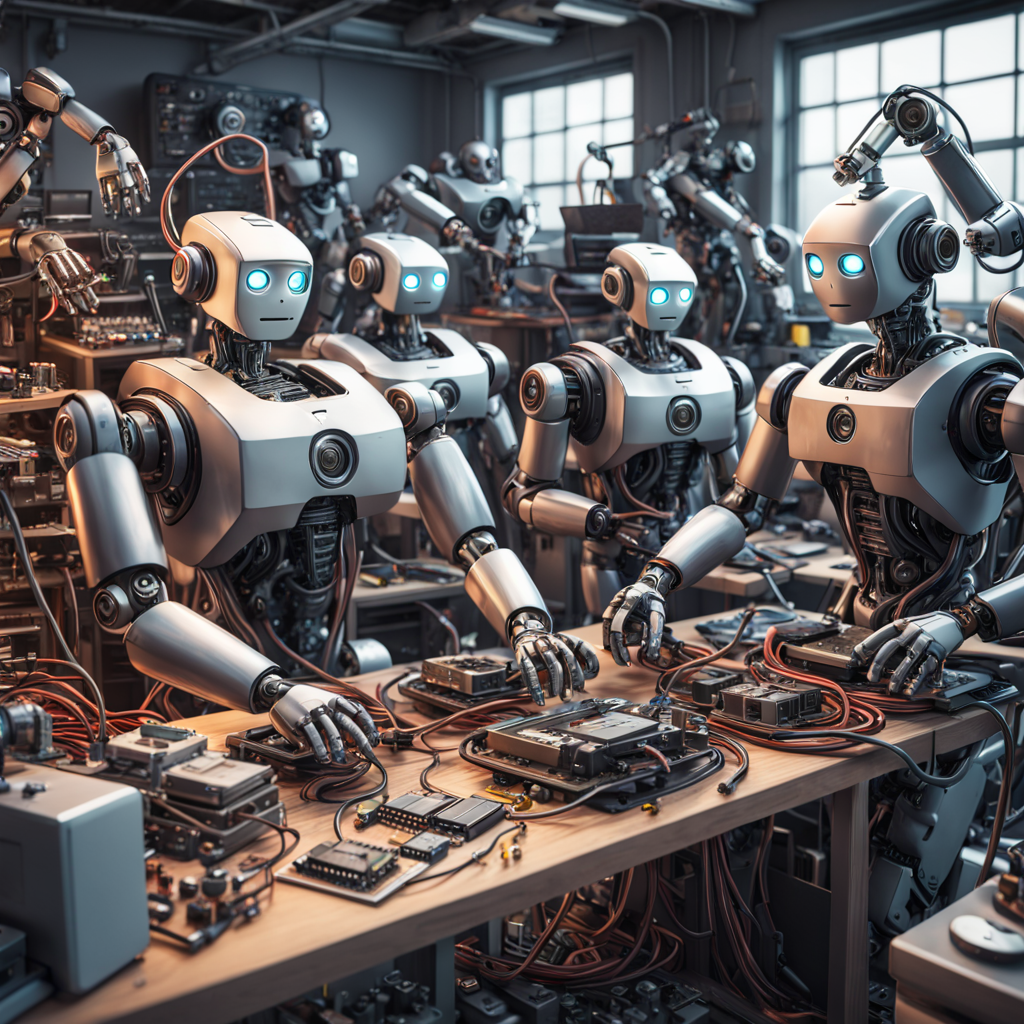
AI impact on jobs is a much debated one and the latest on this is that it could impact 40 % of jobs globally according to IMF Chief, Kristalina Georgieva. She has also warned that advancements in artificial intelligence (AI) could lead to the disappearance of certain jobs.
The IMF is set to release new economic projections in the upcoming weeks and Georgieva made the sensational observations in an interview in Washington before her departure to attend the annual World Economic Forum in Davos, Switzerland. She stated “Your job may disappear altogether — not good — or artificial intelligence may enhance your job, so you actually will be more productive and your income level may go up,”
AI Impact on Jobs in Advanced, Emerging and Low-Income Countries
In a blog post, Georgieva who is currently in the final year of her five-year term as head of the IMF has given precise insights on the current global job economy trends in the AI era. According to her, the results are significant with nearly 40 percent of jobs worldwide being influenced by AI. In the past, routine tasks were mainly affected by automation and information technology, but what sets AI apart is its impact on high-skilled jobs. Consequently, advanced economies are at a higher risk from AI, but they also have more opportunities to gain from its advantages compared to emerging and developing economies.
In developed nations, approximately 60 percent of jobs could be affected by AI. Around half of these jobs might see improvements in productivity through AI integration. However, the other half could face challenges as AI applications take over tasks currently performed by humans. This shift might reduce labor demand, leading to lower wages and fewer job opportunities. In extreme cases, some jobs might even disappear.
On the contrary, in emerging markets and low-income countries, AI exposure is expected to be 40 percent and 26 percent, respectively. These findings imply that emerging markets and developing economies may experience fewer immediate disruptions from AI. However, many of these nations lack the necessary infrastructure and skilled workforce to fully utilize the benefits of AI. This raises the concern that over time, AI could contribute to increased inequality among nations.
How Artificial Intelligence May Disrupt the Indian Job Market
In India, the world’s sixth-largest economy, AI’s effects on employment could be complex and varied. With a massive population and workforce, transformations here may have ripple effects worldwide.
Winners and Losers in the AI Job Market
Per IMF research, AI stands to influence 26% of current jobs in India. Their data shows less exposure compared to advanced economies, where 60% of roles could transform. However, the types of jobs at the highest risk in India mirror global patterns.
Professionals, managers, clerical and sales workers face significant disruption from intelligent algorithms and robots handling tasks once reserved for humans. Customer service, accounts and record-keeping, decision-making, selling and even management oversight could shift to AI entities.
Manual laborers in agriculture and manufacturing may retain jobs, as these roles prove challenging to fully automate currently. The same goes for healthcare workers and personal care providers. Jobs involving social intelligence, creativity and hand skills, tend to be safer, at least for now.

How will AI affect India’s IT sector, which employs nearly 5 million?
While some coding, testing, system administration and help desk jobs seem automatable, human developers, engineers, and architects will continue to drive innovation. The advent of new technologies always creates new jobs too.
Preparing the Indian Workforce for AI Adoption
India’s educational system requires reforms to prepare students for increasingly digital economies. Technical and vocational training programs also allow youths to gain specialized abilities that machines can’t replicate. Governments and businesses must invest to expand this technical education and retraining for those switching careers.
Individual motivation to learn throughout life is equally key. With technologies always evolving, professional skills and knowledge expire quicker than ever. Workers should consistently develop fresh competencies via online courses, boot camps, mentorships, and other resources.
AI brings risks of worsening inequality too, as higher-income employees often most easily reskill and seize new tech-enhanced roles. Offering inexpensive education, as well as recruiting programs and incentives for reskilling underserved communities, is key to bringing about equality.
Preparing Businesses for the AI Productivity Boost
Businesses implementing AI solutions in India and elsewhere need adjustment periods too. Significant IT infrastructure upgrades, data pipeline improvements and organizational redesigns establish foundations. Pitfalls like data errors derailing machine learning initiatives or employee resistance impeding adoption are common without proper stage-setting.
If done right though, AI promises to massively heighten business productivity as repetitive tasks transfer to algorithms. Staff freed from mundane work can uplevel strategies, creative pursuits and human interactions. Managers must help them adopt augmented roles through reassurance, guidance and positive framing.
With the right preparations, India’s people and commercial landscape seem poised to unlock AI’s bountiful economic potential. This rising South Asian superpower could become a model for countries navigating work’s evolution in the intelligence age. Moves to integrate AI while empowering people will prove beneficial to millions. India is surely poised to emerge as a significant leader in the Artificial Intelligence Revolution.




